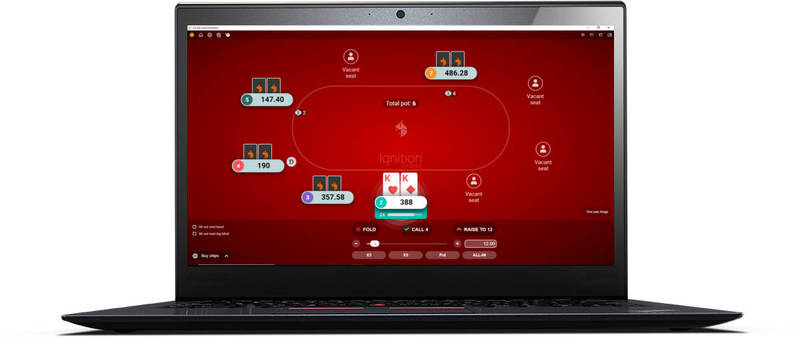How Do You Know If You've Played A Hand Correctly?

How do I know if I played my hand correctly?
As a new player learning the game, it’s very difficult to know whether or not you have played a hand well.
Over time, as your knowledge of the game and your confidence in your ability develops, it will become easier to identify your mistakes. But unfortunately, as a new player it’s actually pretty tricky to know the difference between good decisions and bad decisions.
However, there are a few things that you can do to help you figure out where you’re going right and where you’re going wrong.
How to figure out if you’ve played a hand well.
So, you’ve just played a hand and you’re not sure whether you’ve played it well or made a right pig’s ear of it. The first thing you need to do is grab a copy of the hand history, as we’re going to need to look at the hand as whole. These can be requested from within the poker client or from your poker tracking software.
Once you’ve got your hand history, there are two avenues that you can go down to help you figure out what was good or bad about your play:
- Post the hand history on a forum and ask for a review.
- Look at each stage of the hand for yourself and use some mathematics.
1) Posting your hand history on a poker strategy forum.
This is probably the best (and easiest) option if you’re new to the game and not overly familiar with good strategy. Hopefully some friendly forum members will give you advice and tips on where you went wrong and how to improve.
It will be handy to have comments from a variety of different perspectives, but be sure to keep an open mind with the advice you receive and don’t take everything as gospel.
2) Figuring it out for yourself.
This is obviously a lot harder and is not recommended if you’re new to the game. Furthermore, a complete guide to good and bad plays is out of the scope of this article, but I can link you to a few key articles and tools that will help you in your quest.
- The REM Process - Quite possibly the best guide/framework for helping you to figure out what the best play is in each situation.
- Expected Value - Helps you to identify profitable and losing decisions based on odds.
- Use PokerStove - This is the best equity calculator ever.
It’s a lot of effort and reading I know, but it’s what you need to learn if you want to really analyze your plays.
Some great examples of how to analyze your hands can by found in the hand replayer videos by Jack Wilcox in the poker training videos section.
- Jack Wilcox 2
- Jack Wilcox 3
- Jack Wilcox 4
Why is it difficult to know if you’ve played a hand well?
In poker, you can’t rely on the results of one hand as an indication of how well you’ve played.
- If you’ve won money, it doesn’t mean you played the hand well.
- If you’ve lost money, it doesn’t mean that you played the hand badly.
This is quite possibly the biggest reason why learning how to play good poker can be so difficult. Thanks to the variance (or “luck”) in the game, results don’t really mean anything over the short term.
To judge how well you’ve played a hand, you need to look at your decisions and analyze how much money you would have theoretically won over the long run, regardless of the outcome for one particular hand. Sklansky dollars and G Bucks will come in handy for that.
Quick example of good decisions and bad results.
Let’s say you are dealt pockets aces before the flop. You and your opponent have full stacks. Your opponent decides to push all in before the flop. You call because you have the best starting hand possible, but you end up losing. Was this a bad decision?
No, of course not. You’d be a fool to ever fold pocket aces before the flop in a cash game.
But as you can see, this is an example of why you should never be results orientated. Instead, you should focus on making good decisions regardless of the outcome. That’s how good poker players play poker.
Evaluation of playing hands well in poker.
Never be results orientated in poker. You’ll never improve your game if you focus solely on your results.
As difficult and as annoying as it is, you have to have confidence in your ability to make the correct decisions at the table and not give a flying f*** about the results. Sure, in a perfect world we would be rewarded for making good decisions every single time, but that’s not how it works in poker. If you don’t like it, then don’t play poker.
As I mention in the online poker myths article, good players can't win money all the time.
The best thing you can do is work hard to analyze and understand why a good play is a good one and vice versa. Poker strategy revolves around helping you to make the best decisions, so the more you play and the more you learn the better you will get.
It would be nice to always know the right and wrong plays, but that’s the beauty of poker and what allows the bad players to keep coming back. As annoying as it is, not being to have absolute knowledge of good and bad plays is actually a good thing.
Go back to the interesting Texas Hold'em Articles.
Can You Afford Not To Use
Poker Tracker 4?
“I wouldn’t play another session of online poker without it”
“I play $25NL, and in under 1 week PT4 had paid for itself”
Comments

